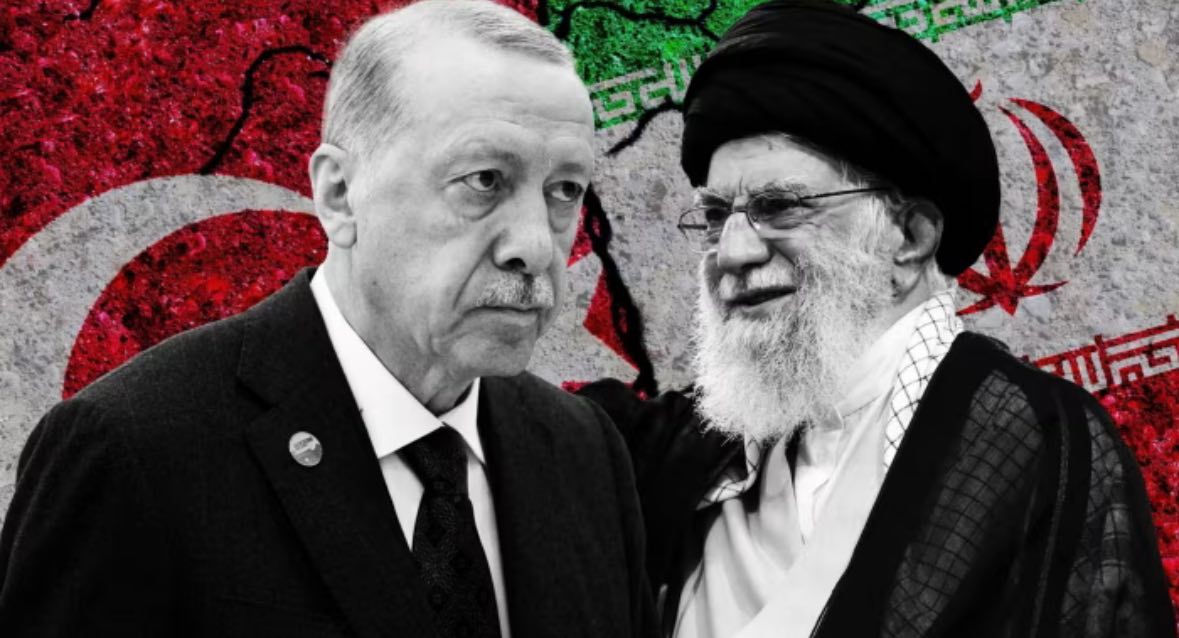Under the guise of mediation, how Erdogan benefits from the Iran-Israel war
Under the guise of mediation, how Erdogan benefits from the Iran-Israel war
According to IranGate News Agency, while military tensions between Iran and Israel have once again placed the West Asia region on the brink of instability, Turkey is trying to turn this complex situation into an opportunity to strengthen its geopolitical position.
Despite President Recep Tayyip Erdogan’s public critical stance against the Israeli government, evidence suggests that Ankara is quietly exploiting the strategic consequences of the recent conflict, particularly the weakening of Iran’s regional influence.
In the midst of this, Turkey, relying on multilayered diplomacy, seeks to establish its position as a key player and active mediator in regional crises, a strategy that, although designed on balance-building, inherently carries complex security calculations and intensifying competitions with the Islamic Republic of Iran.
Amid numerous regional crises, Turkish President Recep Tayyip Erdogan appears to stand on the sidelines but is in fact taking dual advantage of recent developments in West Asia, especially the twelve-day conflict between Israel and Iran, by strengthening Turkey’s regional position and diverting public attention from domestic issues.
Erdogan’s harsh rhetoric against Israel, including describing Netanyahu as the biggest obstacle to peace, alongside his behind-the-scenes efforts to create a balance among rivalries, reflects Turkey’s multifaceted diplomacy at this critical stage.
Although Erdogan explicitly condemned Israel’s attacks on Iranian soil and called for a return to nuclear negotiations, he also avoided direct reference to the role of the United States in these conflicts.
His silence regarding Washington, a long-standing NATO ally, seems to be an attempt to maintain a balance between Western interests and Eastern players.
In this context, his phone conversation with the German Chancellor and his opposition to a nuclear Iran, which was later omitted from the official statement, is another sign of the behind-the-scenes diplomacy Erdogan is pursuing to maintain his influence on the geopolitical stage.
From a security and economic perspective, Turkey’s concerns about potential instability in Iran are understandable.
Ankara, facing chronic inflation and the pressure of millions of refugees, fears that escalating tensions in Iran could lead to higher energy prices and a new wave of migration, a situation that could further exacerbate Erdogan’s fragile position domestically, a crisis that has long been accompanied by economic protests and the suppression of opponents.
At the same time, one cannot ignore that the gradual weakening of Iran’s military infrastructure as a result of Israeli attacks has hidden advantages for Ankara.
In fact, the limitation of Tehran’s regional influence, especially in areas like Syria and Iraq, could provide Turkey with more breathing space, whether in the form of increasing its influence in these countries or in curbing Iran-dependent proxy networks that have occasionally acted against Turkey’s security interests.
In recent years, Turkey has repeatedly expressed concern about the activities of Iran-backed groups in Iraq and Syria, including the Popular Mobilization Units, Kata’ib Hezbollah, and Sinjar Units. The tense Tehran-Ankara relations, especially after reports of meetings between the Quds Force commander and Kurdish leaders whom Turkey considers terrorists, have reached a new stage of confrontation.
These disputes, along with the summoning of ambassadors from both countries, the arrest of suspects linked to Iran on Turkish soil, and mutual accusations, indicate an increasing rift in bilateral relations.
Nevertheless, Turkey’s approach to directly confronting Iran’s proxy networks remains cautious and limited. Even after missile attacks on the Turkish consulate in Mosul, Ankara refrained from widespread retaliatory actions against Iran-affiliated forces.
Such caution could be part of Turkey’s broader strategy to maintain its multilateral diplomatic position and also an effort to avoid being drawn into costly regional conflicts.
However, tensions arising from Iran’s potential connection with the PKK continue to be perceived as a direct threat to Turkey’s national security.
While Ankara hopes to resolve some chronic security challenges by resuming the peace process with the Kurds, the possibility of transferring military capabilities from disarmed branches to groups like PJAK, which operate in Iran, could become a new concern for the security of Turkey’s eastern borders.
Similarly, any weakness in Iran’s operational capabilities in the region, whether due to Israeli pressures or internal consequences in Iran, might lead to a temporary redefinition of Ankara’s security priorities.
In the meantime, Turkey will try to leverage emerging opportunities to simultaneously solidify its role as a mediator, safeguard its security interests, and use the conditions to strengthen its position in the regional power balance.

